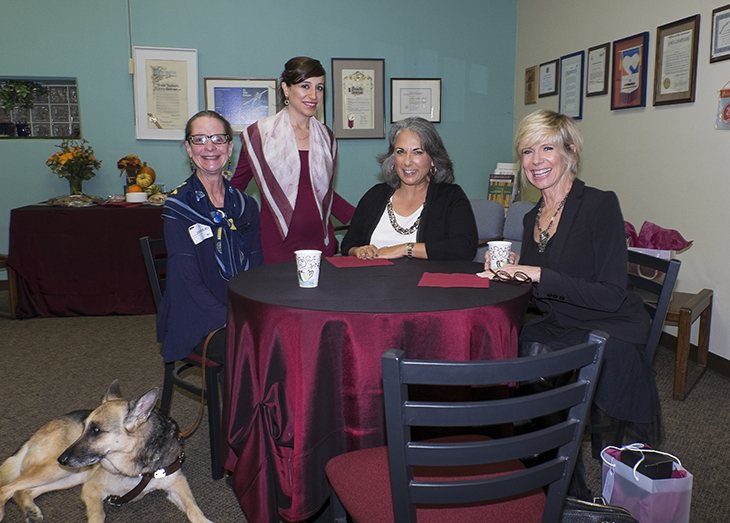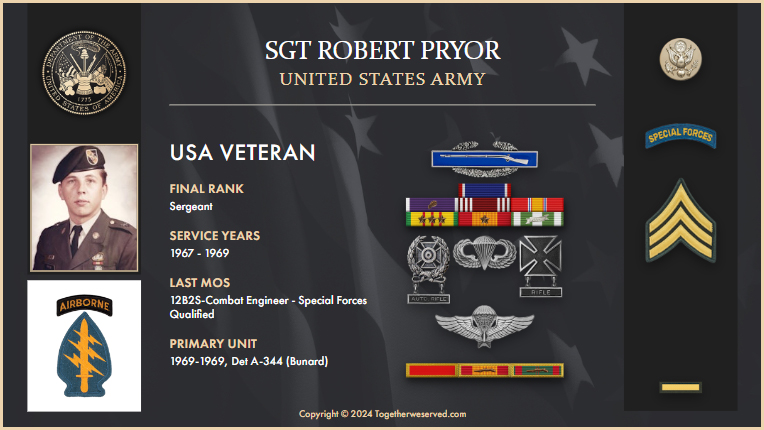“S U I C I D E” There, your computer didn’t blow up. Your phone didn’t burst into flames. If you want to empty a room in ten seconds flat start talking about suicide,
So, while I am honest and open about my own suicide attempt, I am keenly aware that this honesty might be difficult for you – depending on your personal experience. Please stay with me. Because life is a beautiful … Please stay with me …
World Suicide Prevention Day is Sept. 10 and the start of National Suicide Prevention Week in the United States. All month long it’s Suicide Prevention Month.
For almost four years I’ve been writing and giving speeches about mental health and suicide. Why do I do it?
I am blind by my own hand. By my mid-20s a whole bunch of things had gone wrong in my life. I was divorced, I had lost my job, I had moved back in with my parents. To my idealistic 26-year-old self, they all felt like monumental failures.
From where I stand now I can see them for what they were – tough breaks. But at the time all I could see, feel and experience was failure.
After three weeks in the hospital I returned to a changed world. What was I going to do next? How could I get on with life in a world I could no longer see?
I was lucky
Before I even left the hospital I met with a vocational rehabilitation counselor. I don’t remember much of what he said apart from the fact that two people would soon be entering my life. They would teach me how to live with blindness. Although it sounded good I was skeptical.
I had never known anyone who was blind. Heck, I had never known anyone with any disability. And I was still just as depressed as I had been when I shot myself. But what choice did I have?
At the time my life with blindness began there were two specialties within the profession of vision rehabilitation, rehabilitation teaching – now called vision rehabilitation therapy, and orientation and mobility – O&M. Today we also have low vision therapists and assistive technology instructors. My rehabilitation teacher was Vera McClain. My orientation and mobility instructor was Jeff Elliott.
Vera walked in the door for the first time just three weeks after I returned from the hospital. Jeff came along about three weeks after that. These two individuals became the most important people in my life.
There wasn’t an app for \that
Technology has been a marvelous leveling agent for people who are blind. I have six gadgets in my house that talk to me: three laptops, one desktop computer, a tablet and a phone. I use technology for both recreation and work. None of that technology existed back then. I did not get my first talking computer until four years after I became blind. “Back in the day” when I was learning to live with blindness vision rehabilitation didn’t have any shortcuts. There were no apps. I couldn’t pick up my phone and say, “Call my husband at work.” The rehabilitation services I received were “by the book.” And that “book” was written by VA. Vision rehabilitation, as we know it today, was invented by the U.S. Department of Veterans Affairs, during and immediately after, World War II. It was borne out of the dire need to help the many Veterans who returned from that war with new blindness.
I spent six months working with Vera and almost a year working with Jeff. And it was hard work.
Emotional adjustment
A year after becoming blind I chose to enroll in a master’s degree program at Western Michigan University. At the time the degree was in “blind rehabilitation,” now called blindness and low vision studies. I considered pursuing a degree in some mental health field but the time and expense seemed daunting. I could get the master’s degree in blind rehab in a year, and, having just gone through the process of learning to live with blindness myself, I figured I could do a pretty good job in the profession.
My parents dropped me off at Western Michigan University a year and four months after my suicide attempt. The next day I walked into my first class and met the man I’ve spent 31 years with. That was quick, right? I went to Western against the advice of almost everybody. “You haven’t been blind long enough.” Or, “You haven’t fully made the emotional adjustment.”
But I knew I was ready. My parents and teachers supported me.
There are many paths to learning to live with blindness. The path I took turned out to be the right one for me. For me, emotional adjustment to blindness was what happened while I was busy learning to live again.
Today
Fast forward thirty or so years. I work for VA. My current position is with the Office of Information & Technology Employee Engagement Task Force. It’s a full-time detail that was just created in July. We approached senior leadership and asked if they would share something personal about themselves. This one features Dr. Paul Tibbits.
Dr. Tibbits explains perfectly why I’ve been doing what I’ve been doing at my own expense and on my own time.
By the numbers
- 117 suicides per day in the United States on average
- Suicide is the 10th leading cause of death in the United States
- 42,773 Americans died by suicide in the year for which most recent data is available
- $44 billion annually, economic impact in the United States
- Firearms account for almost 50 percent of all suicides.
If you live long enough your life will be touched by suicide – either your own or that of someone you know.
Is that an outrageous claim? No, it’s based on four years of standing before audiences, telling my story and listening to people afterwards. Every time I’ve given a presentation – every single time – More than one person has told me they have either considered suicide or attempted suicide. And the next words out of their mouth are usually, “And I’ve never told anyone until now.”
Breaking The Silence
My dream is a world in which suicide does not exist. Impossible perhaps but I’m going to dream it anyway. I know I, alone, can’t make that dream come true. All I can do is continue writing, standing before audiences, telling the truth.

Topics in this story
More Stories
Summer can be a joyful time of year, but some outdoor activities can be hard for some Veterans. In this guest post, former VA Secretary Bob McDonald shares resources and plans to navigate summer activities.
"A CAPITOL FOURTH" airs on PBS Thursday, July 4, 2024 from 8:00 to 9:30 p.m. E.T.
The following is an account from Army Veteran Robert Pryor on how he was able to find and reconnect with the pilot who saved his life in Vietnam.







The va did surgery on me and caused sever nerve damage. Leaving my dominate arm crippled.I went to the mental health clinic to speak to some one to help me deal with the depression and was told they don’t offer assistance for that. Every day is a struggle to get through and every day I wish I would not have survived the surgery. I now have to watch me lose every thing i worked hard for. But the va told me when I’m homeless come back they have a program for that.
Heve you ever been shackled by a sheriff? Not something I expected when my therapist called EMS and asked them to check on me. I had taken too much medication. I had on my VA record a suicide attempt six years prior.
At the hospital I told them of my deep depression and loss of hope. I was given medication that knocked me out for six hours. When I awoke, I was told the therapist decided I needed to go to the VA for more evaluation. I was given a medication that really did not allow me to reject anything. I completely complied. The sheriff pulled full shackles (waist chain for hand cuffs and cuffs on my ankles. I was told the judge made a court order for me to go. I was put in a police care and taken to the VA.
The next day I went in front of a judge. I heard what the ER and VA wrote. They said I had delusions which were true events I had witnessed when I served.
The main issue was the treatment. I was shackled like a prisoner. The sheriff dept told me later that is the procedure for all mental health patients that need to go to another hospital. Even if they fully comply. I was abuseed in the military and handcuffs were used. This action by the Virginia State has created another trauma. I reached out for help and was treated this way.
I was in another state, Missouri. They use an ambulance and restraints by straps across you. The are EMS, not police.
I do not feel better. I wonder everyday if I will make. I WILL NEVER reach out again as I fear shackles. I am afraid to go home and have been driving all over the country trying to figure out what to do.
I also can say: when you go to the ER and get transferred by the police, you are told that if you then volunteer to stay in the hospital, you lose all rights to use, transport or carry a gun of any kind. If you choose to go through the system and you are found you need to stay in the hospital for treatment ( even for PTSD) you lose the same rights. Lucky for me the entire writings by the ER were not true and it was thrown out and I left.
If you go to the ER in Virginia, you will get a TDO and you will go for another evaluation at a psych ward. The ER people will not chance you doing something and their jobs threatened.
Maybe that procedure should be questioned and treatments of veteran’s that need help be treated with more dignity. Now I am alone for I fear the system. I will not return to the VA for treatment nor will I go anywhere else. I was not even suicidal at the time. Just depressed and too much medication. I left the va hospital AMA because I felt it could happen again. I wonder how many states treat the behavioral health patients like that.
Sue, I am a women veteran who is a SCI/SCD (spinal cord injury/disease) service connected. I also am a Low Vision Specialist and Optometrist (worked at SBRC {1988-89} and EBRC{1995-1998}). I am a suicide survivor who has reached out to the VA about my story. I feel the need to share it as an educational tool for the VHA BH system and VA Crisis Line. I believe the VHA system is one of the best healthcare systems in our country (esp. for a SCI/D patient) and do not want my story to hurt the system. I only want this to show someone who was so far from risk of suicide had a breaking point and wasn’t heard by all she reached out to. I reached out from May 20, 2013 until my attempt June 28, 2013 (after the Crisis Line didn’t return a call to check up to see how I was doing). I reaached out to BH (3x) to move my appointment with my psychiatrist from July 24, 2013 as I felt my psych meds were off, SCI Center, my husband even requested a respite from my SCI Center, then finally the VA Crisis Line. My original records did not reflect all the attempts to get help until after I spoke at a Town Hall meeting held by my VAMC. While reviewing my records a few weeks after the Town Hall. I noticed notes in my records about the attempts for help from the VA services I contacted. The really sad outcome was I was in a private facility until July 11 and still could not see my psychiatrist at the VAMC until July 24. The whole attempt could have been avoided as it was discovered my meds were off, just as I felt. I was pooping them out due to my SC neurogenic bowel. My psychiatrist told me at anappointment afew months later, that he found other veteran had similar issues with the same meds.
I have found that being a Women Veteran many timesa bed isn’t available for me. My attempt could have been avoided had someone really listened to me. Since the attempt my husband fears I will do this again. I am having trouble dealing with his fear as the attempt was not planned or intentional. I just reached my breaking point and don’t even remember taking the 45 flexural I took that night. I should not be alive or have any cognitive skills according to the Private hospitals neurologist. I am here for a reason.
Since its a selfish world, there is no need for a person in need to go it alone . Veterans in need of help can only go to the VET Center maybe one group meeting a week in the city. When there many or dozens of self help meetings scheduled around the clock , everywhere. Some times the personal is not military related or maybe a person just needs to be around strangers with major problems. Go to any meeting available & listen.
I am a veteran and I know that suicide rates are very high among service members and veterans. It’s unfortunate that it has taken so long for us to get to this point. The conversation concerning suicide is just beginning and should be talked about regularly and in schools as well. Children commit suicide for various reasons but mostly from being bullied. I think the real solution lies in keeping the talk going. Thank you for the article and for changing your life because I’m quite sure “you have given someone a reason to go on and live”.
Comment on Ms Martin’s post. I am not a veteran myself but my family have all served and I honor and respect the women and men who have chosen to serve our country. The most important thing through all of this is death did not win. Life prevailed and it chose you to carry the beautiful concept that someday suicide will find its life stealing ways out the door. Thank you for sharing. I too have been to visit that lie. My lie convinced me how beautiful it is in death and life is the hell we must endure. After all, don’t we turn into stars, earn our wings and live amoung the Angels? Who wouldn’t choose that over pain? When it starts to become logical, no longer even emotional, like you, you need to speak out. You are a fabulous, beautiful soul that has caused a stillness and peace to reside were there wasn’t any. I hope it stays.
Someone from Public Affairs at the VAMC, where he is a patient, should have sent a letter to his Congressional Representative and President Obama, to invite them to be there for him. These are the things that we don’t see on the news. A little bit more effort could’ve made this day shine more for all Veterans.
Linda S. Brashears
SSG US ARMY (RET)
Purple Heart Recipient